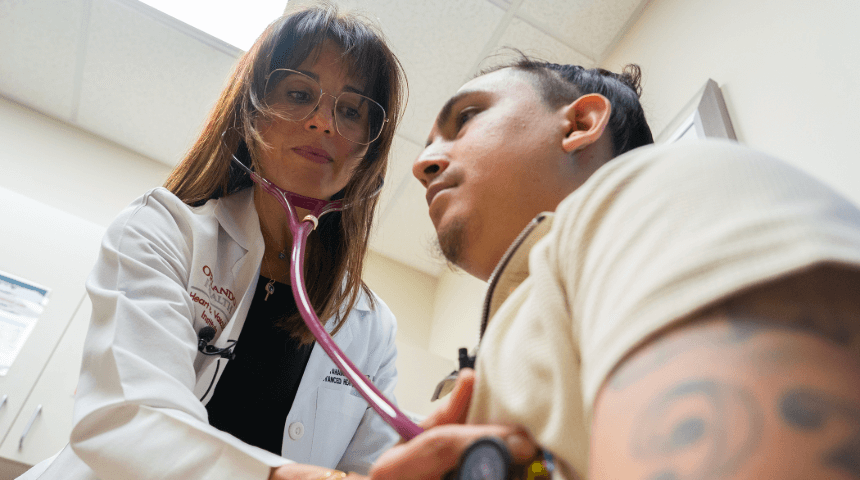The thump-thump-thump of your heartbeat is a quiet, reassuring sensation that is as natural as breathing. But what if that steady rhythm starts pounding too fast, flutters or even becomes too slow?
If this happens without an obvious cause — such as exertion or stress — you may be experiencing an arrythmia, which is an abnormal rhythm of your heartbeat. While this can be nonthreatening, it can lead to more serious health problems and even emergency situations.
While a few types of arrhythmias can be hereditary, they typically are set off by a trigger, such as exercise or anxiety. But dehydration, hormone imbalances or blood sugar levels that are too high or low also can cause these irregular heartbeats. Several risk factors can make you more susceptible to arrhythmias, including coronary heart disease, hypertension, thyroid issues and even heavy caffeine or nicotine use.
What It Feels Like
Along with a fluttering or racing of your heartbeat — or even an irregular or “skipped beat” — those with an arrhythmia may feel:
-
Fatigue or weakness
-
Dizziness or lightheadedness
-
Fainting or near-fainting
-
Shortness of breath and anxiety
-
Chest pain or pressure
When to Seek Medical Care
Because the symptoms of an arrhythmia can be similar to more serious health complications, be sure to see your doctor. Even though an arrhythmia can be harmless, if left unchecked and untreated, the reduced or blocked blood flow can lead to significant complications affecting your heart and brain. Studies have linked cognitive issues such as dementia and Alzheimer’s disease to a history of arrhythmias, which also can cause stroke, cardiac arrest or heart failure.
Preventable and Treatable
As with many illnesses, living a healthy lifestyle is the best step toward prevention. Regular exercise and a balanced diet low in processed foods and sugar — but high in vegetables and lean proteins — will ward off heart disease, which is often a precursor to arrhythmias. Treatment options include reducing caffeine, prescribed medicines or medical procedures such as cardiac ablation.
Should you find your heart beating to a new rhythm, don’t panic — anxiety can make your condition worse. Simply give your doctor a call. You’ll be back in tune in no time.
Choose to Stay in Touch
Sign up to receive the latest health news and trends, wellness & prevention tips, and much more from Orlando Health.
Sign Up




